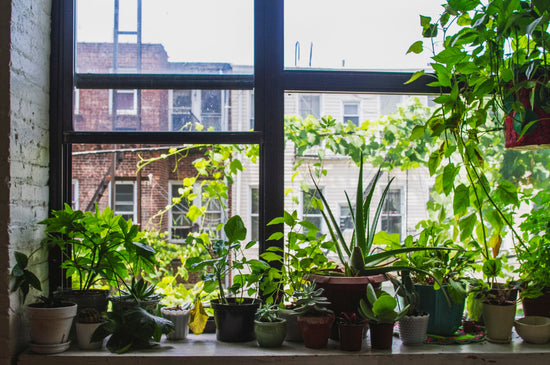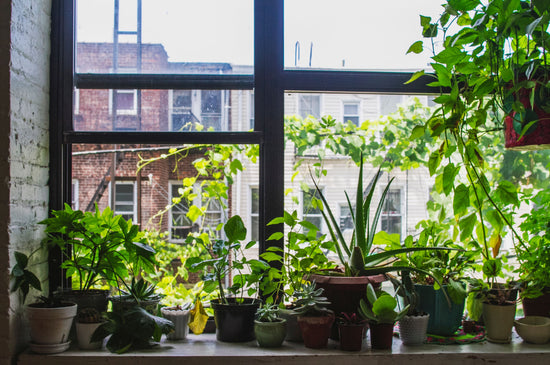Are Lemon Tree Leaves Edible?
Lemon trees are beloved for their fragrant blossoms, zesty fruit, and lush foliage. While most people focus on the citrus fruit they produce, many wonder if lemon tree leaves are edible and how they can be used. The answer is yes—lemon tree leaves are not only edible but also highly versatile in culinary and medicinal applications. With their subtle citrus flavor and aroma, lemon tree leaves add a unique touch to teas, marinades, and desserts. Discover more about lemon trees, including the Meyer Lemon Tree, at Wekiva Foliage.
Are Lemon Tree Leaves Safe to Eat?
Yes, lemon tree leaves are safe to consume when sourced from organic or untreated trees. However, it’s crucial to ensure that the tree has not been sprayed with harmful pesticides or chemicals before using the leaves for culinary purposes.
Popular Uses for Lemon Tree Leaves
-
Flavoring Teas and Drinks
Lemon tree leaves are often steeped in hot water to create a refreshing herbal tea. They can also be added to cocktails or lemonade for an aromatic twist. -
Enhancing Desserts
Use lemon tree leaves as a garnish or infuse them into custards, ice creams, or syrups to impart a delicate citrus essence. -
Cooking and Marinades
The leaves can be wrapped around meats or fish before grilling or steaming, infusing the dish with a subtle lemony aroma. -
Medicinal Uses
In traditional medicine, lemon tree leaves are believed to have calming and digestive properties, making them a soothing addition to teas.
Which Lemon Tree Varieties Are Best for Edible Leaves?
-
Meyer Lemon Tree
The Meyer lemon tree is highly prized for its sweeter fruit and fragrant leaves. Its leaves are softer and more aromatic than other varieties, making them ideal for culinary uses. Find a Meyer Lemon Tree at Wekiva Foliage. -
Calamondin Plant (Calamansi)
Known for its small, tart fruit, the calamondin plant also features aromatic leaves that are commonly used in Southeast Asian cuisine. -
Kumquat Plant
While primarily grown for its fruit, kumquat leaves can also be used to enhance teas and marinades. -
Lemonade Tree
This hybrid variety produces sweet, low-acid fruit, and its leaves carry a mild citrus scent perfect for culinary applications.
Other Edible Citrus Leaves
If you’re exploring the use of lemon tree leaves, consider experimenting with leaves from other citrus trees. Lime leaves, especially those from the kaffir lime tree, are a staple in Thai and Southeast Asian cooking. The leaves of pomelo trees can be used similarly to lemon leaves for flavoring dishes. Mandarin orange leaves offer a mild, sweet citrus aroma, ideal for desserts and teas.
Benefits of Growing Lemon Trees for Edible Leaves
-
Dual Purpose
Lemon trees not only provide delicious citrus fruit but also edible leaves, making them a versatile addition to any garden or indoor space. -
Easy to Grow
Many varieties, such as the Citrus Meyer Lemon Tree, are well-suited for container gardening, allowing you to enjoy fresh leaves year-round. -
Eco-Friendly
Growing your own lemon tree ensures access to untreated, organic leaves, perfect for cooking and medicinal uses.
Explore our collection of Fruit Trees to find the perfect lemon tree or other citrus options for your home or garden.
FAQs About Lemon Tree Leaves
Q: Can I eat lemon tree leaves raw?
While lemon tree leaves are safe to eat, they are usually used as an infusion or flavoring rather than consumed raw due to their fibrous texture.
Q: Are all citrus leaves edible?
Most citrus leaves, including those from lime, kumquat, and calamondin plants, are edible and safe for culinary use.
Q: How do I ensure my lemon tree leaves are safe to eat?
Always use leaves from organically grown or untreated trees. Wash them thoroughly before use to remove dirt or residue.
Q: Can lemon tree leaves be used for medicinal purposes?
Yes, lemon tree leaves are often steeped in teas for their calming and digestive benefits.
Q: Where can I buy lemon trees with edible leaves?
Visit Wekiva Foliage to browse a variety of citrus trees, including the Meyer Lemon Tree, known for its fragrant and edible leaves.
Lemon tree leaves are a unique and flavorful addition to your culinary repertoire, offering endless possibilities for enhancing dishes and drinks. Whether you’re growing a Meyer lemon plant, a kumquat plant, or exploring other citrus varieties, these versatile leaves bring a touch of zest and aroma to your home and kitchen.





